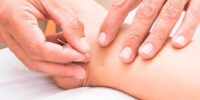Chinese Medicine For Healthy Aging: Nurturing Vitality And Longevity
Chinese Medicine for Healthy Aging: Nurturing Vitality and Longevity
Chinese medicine has a rich history of promoting health and longevity, with a comprehensive approach that encompasses various modalities such as acupuncture, herbal remedies, dietary therapy, qigong exercises, mindfulness, and meditation.
This article explores the principles and practices of Chinese medicine that aim to nurture vitality and promote healthy aging.
Chinese medicine is based on the concept of balance and harmony within the body, mind, and spirit. It views aging as a natural process that can be influenced by lifestyle choices and external factors.
Acupuncture, a key component of Chinese medicine, stimulates specific points along the body’s meridians to restore balance and improve overall well-being. Herbal remedies, carefully selected based on individual needs, are used to support longevity and vitality.
Dietary therapy focuses on nourishing the body with appropriate foods and herbs, while qigong exercises combine movement, breathwork, and meditation to cultivate vital energy. Mindfulness and meditation practices enhance mental clarity and emotional well-being, promoting longevity.
Lastly, adopting healthy lifestyle habits, such as regular exercise, adequate sleep, and stress management, further contribute to healthy aging.
By integrating Chinese medicine into daily life, individuals can harness its holistic principles and practices to nurture vitality and promote longevity. This article will provide valuable insights and practical tips for incorporating Chinese medicine into one’s lifestyle for healthy aging.
The Principles of Chinese Medicine
The principles of Chinese medicine encompass a comprehensive framework that guides the understanding and application of this ancient healing tradition.
Chinese medicine is based on the concept of balance and harmony within the body, as well as the interplay of various energies, known as Qi, Yin, and Yang. According to these principles, good health is achieved when Qi, Yin, and Yang are in a state of equilibrium. Any imbalance or disruption in these energies can lead to illness and disease.
Chinese medicine also emphasizes the importance of prevention and treating the root cause of an illness rather than just the symptoms. It takes into account the individual’s unique constitution and aims to restore harmony through various techniques such as acupuncture, herbal medicine, diet and lifestyle modifications, and mind-body practices like tai chi and qigong.
By addressing the underlying imbalances and promoting overall well-being, Chinese medicine seeks to nurture vitality and promote longevity.
Acupuncture for Healthy Aging
Acupuncture has been shown to have potential benefits in promoting overall well-being and addressing age-related concerns. This traditional Chinese medicine technique involves the insertion of thin needles into specific points of the body to stimulate and balance the flow of energy, known as qi. By targeting these specific points, acupuncture can help to improve circulation, reduce inflammation, and enhance the body’s natural healing ability.
In the context of healthy aging, acupuncture has been found to be effective in relieving pain and stiffness associated with conditions such as arthritis and osteoarthritis. It can also help to alleviate symptoms of menopause, such as hot flashes and sleep disturbances. Additionally, acupuncture has been shown to improve mental and emotional well-being by reducing stress, anxiety, and depression.
Overall, acupuncture offers a holistic approach to healthy aging by promoting vitality and longevity.
Herbal Remedies for Longevity
This discussion focuses on the use of herbal remedies for longevity, specifically the role of medicinal plants and herbs in promoting overall wellness and supporting a healthy aging process.
These natural remedies have been used for centuries in traditional medicine practices and are believed to have the potential to boost the immune system and energy levels.
By exploring the potential benefits of herbal remedies, individuals may be able to enhance their overall well-being and nurture vitality and longevity.
Using Medicinal Plants and Herbs
Using medicinal plants and herbs can be an effective approach in promoting healthy aging and enhancing vitality and longevity. Traditional Chinese Medicine (TCM) has a rich history of utilizing various plants and herbs for their medicinal properties. These natural remedies are believed to restore balance and harmony within the body, addressing the root cause of aging-related issues. For instance, ginseng, known as the "king of herbs" in TCM, is renowned for its rejuvenating properties and is used to enhance physical and mental vitality. Another example is goji berries, which are considered a superfood in TCM due to their antioxidant and immune-boosting effects. To provide a deeper understanding, the table below highlights three commonly used medicinal plants and herbs in TCM along with their properties and benefits:
| Medicinal Plant/Herb | Properties | Benefits |
|---|---|---|
| Ginseng | Adaptogenic, tonic, anti-aging | Enhances vitality, boosts immune system, improves cognitive function |
| Goji berries | Antioxidant, immune-stimulant | Supports healthy aging, enhances vision, improves immune function |
| Astragalus | Adaptogenic, immune-modulating | Strengthens immune system, promotes cardiovascular health, increases energy levels |
By incorporating these medicinal plants and herbs into a balanced and healthy lifestyle, individuals may experience improved well-being and increased longevity.
Boosting Immune System and Energy
In the quest for optimal well-being and increased vitality, enhancing the immune system and boosting energy levels are crucial considerations. Chinese medicine offers various approaches to achieve these goals.
Immunity can be strengthened through the use of herbal remedies such as astragalus, which has been shown to stimulate immune cell activity and enhance resistance against infections.
Additionally, the practice of qigong, a form of gentle exercise and meditation, is believed to promote the flow of energy throughout the body, thus improving overall vitality.
Acupuncture is another technique used in Chinese medicine to restore balance and stimulate the immune system. By targeting specific points on the body, acupuncture is thought to regulate the body’s energy flow and enhance immune function.
Overall, Chinese medicine provides a holistic approach to boosting the immune system and energy levels, promoting healthy aging and longevity.
Supporting Overall Wellness
One effective approach to promoting overall wellness involves incorporating various techniques and practices that support the body’s natural healing processes and enhance vitality. Chinese medicine offers a holistic perspective on wellness, focusing on the balance and harmony of the body, mind, and spirit. Traditional Chinese Medicine (TCM) employs a range of modalities to support overall wellness, including acupuncture, herbal medicine, dietary therapy, and mind-body practices such as tai chi and qigong. These techniques aim to restore the body’s natural energy flow, strengthen the immune system, and promote overall vitality. TCM views the body as an interconnected system, and each modality works synergistically to maintain health and prevent disease. By incorporating these practices into daily life, individuals can support their overall wellness and enhance their ability to age healthily.
| Technique | Benefits | Examples |
|---|---|---|
| Acupuncture | Pain relief, stress reduction, improved immune function | Insert examples here |
| Herbal medicine | Enhances vitality, supports organ function, balances energy | Insert examples here |
| Dietary therapy | Nourishes the body, promotes digestion, supports specific health needs | Insert examples here |
| Tai chi and qigong | Enhances balance, flexibility, and mental clarity | Insert examples here |
| Mind-body practices | Reduces stress, improves emotional well-being, supports overall health | Insert examples here |
Dietary Therapy for Healthy Aging
This discussion will focus on dietary therapy for healthy aging, specifically eating according to Traditional Chinese Medicine (TCM), balancing Yin and Yang in one’s diet, and nourishing the body to prevent disease.
TCM emphasizes the importance of consuming a balanced diet that is tailored to individual needs, taking into account factors such as age, constitution, and climate.
The concept of Yin and Yang in TCM dietetics involves creating a harmonious balance between cooling and warming foods to promote overall well-being.
Additionally, TCM emphasizes the use of nutrient-dense foods and herbal remedies to nourish the body and support optimal health.
Eating According to Traditional Chinese Medicine
To adhere to the principles of Traditional Chinese Medicine, it is recommended to adopt dietary habits that align with its teachings. According to Traditional Chinese Medicine, food is not solely seen as a source of nutrients, but also as a form of medicine that can promote balance and harmony within the body.
The approach to eating in this system is based on the concept of Yin and Yang, as well as the Five Elements theory. It emphasizes the consumption of whole, unprocessed foods, and encourages a balanced intake of different flavors and temperatures. For example, a meal should include a variety of colors, textures, and tastes to ensure the nourishment of different organs.
Additionally, specific foods are believed to have different properties and can be used to treat specific health conditions. For instance, ginger is thought to warm and invigorate the body, while green leafy vegetables are considered cooling and help to detoxify.
By eating according to Traditional Chinese Medicine, individuals can support their overall health and well-being as they age.
Balancing Yin and Yang in Your Diet
Achieving a harmonious balance between Yin and Yang in one’s diet can contribute to a sense of equilibrium and overall well-being. According to Traditional Chinese Medicine (TCM), Yin and Yang are two opposing forces that exist in nature and within the human body.
In terms of diet, Yin foods are considered cooling and nourishing, while Yang foods are warming and energizing. To balance Yin and Yang in the diet, individuals can consider the following guidelines:
- Include a variety of foods: Incorporate a mix of Yin and Yang foods in each meal to maintain balance.
- Eat seasonally: Consume foods that are naturally available during each season to align with the body’s needs.
- Pay attention to cooking methods: Different cooking methods can affect the Yin-Yang properties of foods, so it is important to choose methods that promote balance.
- Listen to your body: Tune in to your body’s cues and adjust your diet accordingly to maintain equilibrium.
By following these principles, individuals can optimize their diet to support healthy aging and promote overall vitality.
Nourishing the Body and Preventing Disease
Nourishing the body and preventing disease can be achieved by incorporating a balanced mix of Yin and Yang foods in one’s diet, consuming seasonal foods, considering cooking methods, and paying attention to the body’s cues for maintaining equilibrium.
Chinese medicine emphasizes the importance of consuming a variety of foods that possess different energetic properties. Yin foods, such as fruits, vegetables, and legumes, have cooling and nourishing qualities that help to balance excessive heat within the body. On the other hand, Yang foods, such as meat, spices, and ginger, have warming and invigorating properties that promote circulation and vitality.
Additionally, following the principles of seasonality in food selection ensures that the body receives the necessary nutrients and energetic support in different weather conditions.
Cooking methods also play a crucial role in preserving the energetic qualities of the ingredients. Steaming and boiling are preferred over frying or grilling as they retain more of the food’s inherent vitality.
Lastly, listening to the body’s signals, such as cravings or aversions, can guide individuals in making appropriate food choices to maintain equilibrium and prevent disease.
Qigong Exercises for Vitality
Qigong exercises can enhance vitality and promote healthy aging. These gentle and flowing movements are an integral part of Chinese medicine and are believed to cultivate and balance the body’s vital energy, known as Qi. Regular practice of Qigong can help improve circulation, strengthen the immune system, and promote mental clarity and emotional well-being.
Here are three benefits of Qigong exercises for vitality:
-
Increased energy levels: Qigong exercises focus on deep breathing, gentle movements, and meditation, which can help boost energy levels and alleviate fatigue.
-
Improved flexibility and balance: The slow and controlled movements in Qigong can enhance flexibility and improve balance, reducing the risk of falls and injuries.
-
Stress reduction: Qigong exercises incorporate relaxation techniques that can help reduce stress and promote a sense of calm and inner peace.
Overall, incorporating Qigong exercises into a daily routine can contribute to nurturing vitality and achieving healthy aging.
Mindfulness and Meditation for Longevity
Mindfulness and meditation practices have been shown to have positive effects on overall well-being and may contribute to a longer and healthier life. These practices, derived from ancient Chinese medicine, involve focusing one’s attention on the present moment, cultivating awareness, and promoting a non-judgmental attitude towards thoughts and sensations.
Research suggests that regular mindfulness and meditation practice can reduce stress, anxiety, and depression, which are common factors associated with aging and chronic diseases. Additionally, mindfulness and meditation have been found to improve cognitive function, attention, and emotional regulation, all of which are important for healthy aging.
By cultivating a state of mental calmness and relaxation, these practices may also enhance sleep quality, boost immune function, and promote overall vitality and longevity. Incorporating mindfulness and meditation into one’s daily routine may therefore be a valuable strategy for supporting healthy aging.
Lifestyle Habits for Healthy Aging
Promoting a balanced and active lifestyle through regular exercise, nutritious diet, and adequate sleep is crucial for maintaining optimal health and well-being as we age. Engaging in physical activity helps to improve cardiovascular health, maintain muscle strength and flexibility, and enhance cognitive function. A nutritious diet, rich in fruits, vegetables, whole grains, and lean proteins, provides essential nutrients and antioxidants that support cellular health and reduce the risk of chronic diseases. Sufficient sleep is necessary for proper immune function, cognitive performance, and emotional well-being. Incorporating these lifestyle habits can have a significant impact on healthy aging. To further illustrate the importance of these habits, the table below highlights their benefits and recommended guidelines:
| Lifestyle Habit | Benefits | Recommended Guidelines |
|---|---|---|
| Regular Exercise | – Improves cardiovascular health – Enhances cognitive function – Maintains muscle strength and flexibility |
Engage in at least 150 minutes of moderate-intensity aerobic activity or 75 minutes of vigorous-intensity aerobic activity per week. Include muscle-strengthening activities at least twice a week. |
| Nutritious Diet | – Provides essential nutrients and antioxidants – Reduces the risk of chronic diseases |
Consume a variety of fruits, vegetables, whole grains, lean proteins, and healthy fats. Limit intake of processed foods, added sugars, and sodium. |
| Adequate Sleep | – Supports immune function – Enhances cognitive performance – Promotes emotional well-being |
Aim for 7-9 hours of quality sleep per night. Maintain a consistent sleep schedule and create a conducive sleep environment. |
Integrating Chinese Medicine into Your Life
Integrating traditional practices from Eastern cultures can offer alternative approaches to maintaining well-being and optimizing health as we age. Chinese medicine, with its emphasis on balance and harmony, provides a comprehensive framework for promoting healthy aging.
One key aspect of integrating Chinese medicine into our lives is adopting a holistic approach that considers the interconnectedness of the body, mind, and spirit. This involves incorporating practices such as acupuncture, herbal medicine, tai chi, and qigong into our daily routines.
Acupuncture, for instance, can help regulate the flow of energy in the body, while herbal medicine offers natural remedies for various health concerns. Tai chi and qigong promote physical and mental relaxation, enhancing overall well-being.
By embracing these practices, individuals can harness the wisdom of Chinese medicine to nurture vitality and longevity in their lives.
Frequently Asked Questions
Chinese medicine differs from Western medicine in its approach to age-related health issues. While Western medicine focuses on treating specific symptoms, Chinese medicine aims to restore balance and harmony in the body to promote overall health and longevity.
Are there any potential risks or side effects associated with acupuncture and herbal remedies for healthy aging?
Potential risks and side effects of acupuncture include bruising, soreness, and infection. Herbal remedies may cause allergic reactions, drug interactions, and adverse effects on the liver and kidneys. Further research is needed to fully understand and document these risks.
Can dietary therapy in Chinese medicine help with weight management and maintaining a healthy metabolism as we age?
Dietary therapy in Chinese medicine can aid in weight management and maintaining a healthy metabolism during the aging process. It has been shown to improve digestion, balance energy levels, and promote overall well-being.
How long does it typically take to see results from practicing qigong exercises for vitality?
Results from practicing qigong exercises for vitality can vary based on factors such as individual commitment, health status, and frequency of practice. Generally, noticeable improvements in vitality can be experienced within a few weeks to several months of consistent qigong practice.
Are there any specific mindfulness and meditation techniques recommended in Chinese medicine for promoting longevity?
Mindfulness and meditation techniques recommended in Chinese medicine for promoting longevity include Taoist meditation, which focuses on cultivating inner energy and harmonizing mind and body, and Zhan Zhuang, a standing meditation that enhances vitality and strengthens the body.









